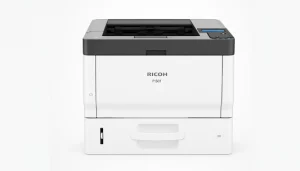Digital Transformation in SMEs: The Role of DMS Systems for Sustainable Efficiency
Digital transformation is a key issue for companies of all sizes, especially medium-sized businesses. As digitalization progresses, the demands on companies to make their business processes more efficient also increase. DMS systems for medium-sized businesses play a crucial role in this. They not only enable the digital archiving of documents, but also the automation and optimization of workflows. In this article, we examine the importance of DMS systems for medium-sized businesses, their advantages, challenges and concrete application examples.
What are DMS systems?
Document management systems (DMS) are software solutions used to manage, store and track documents. The functions of DMS systems include:
- Digital archiving of documents
- document search and retrieval
- Workflow management for process automation
- Security management to ensure data protection
- integration with other software solutions
By using DMS systems for medium-sized businesses Companies can significantly increase their efficiency while reducing costs.
The Importance of Digital Transformation in SMEs
Small and medium-sized businesses are the backbone of the German economy and are faced with the challenge of keeping pace with digitalization. Statistics show that companies that invest in digital technologies often gain a competitive advantage. According to a study by Statista Companies that implement digital transformation strategies have been able to increase their productivity by up to 30%.
Advantages of DMS systems in medium-sized businesses
The implementation of DMS systems offers numerous advantages:
- Increased efficiency: By automating document processes, manual tasks are minimized, saving time.
- Space saving: Fewer physical files lead to reduced storage costs for office space.
- Sustainability: Reducing paper consumption promotes environmentally friendly practices.
- Mobile access: DMS systems offer employees the opportunity to access documents from anywhere.
- Security improvements: DMS enables better access control and security for sensitive data.
Challenges in the implementation of DMS systems
Despite the many advantages, there are also challenges to overcome when implementing DMS systems. These include:
- Financial investments: The initial costs for implementation and training can be high.
- Acceptance among employees: Changes in workflow can meet with resistance.
- Technical Integration: Ensuring that the DMS is compatible with existing systems can be complex.
Case Studies: Successful Implementations of DMS Systems
To make the advantages of DMS systems tangible, let us look at some practical examples:
Case Study 1: Company XYZ
Company XYZ, a medium-sized manufacturing company, implemented a DMS system to manage technical documents. Before the implementation, employees needed an average of 30 minutes to find relevant documents. After the implementation, search times were less than 5 minutes, which significantly increased efficiency.


Case Study 2: Company ABC
Company ABC, a healthcare service provider, reduced its paper consumption by 80% through a DMS system. This resulted in cost savings and a significant improvement in the company's sustainability goals.
The role of DMS systems in the digital strategy of medium-sized companies
The role of DMS systems in the digital strategy of medium-sized companies cannot be overestimated. They are not just a tool for document management, but a key component in the overall strategy for digital transformation. Companies that integrate DMS systems for medium-sized businesses seriously, can pursue the following strategies:
- Creating a digital culture: Training and workshops promote the acceptance of new technologies.
- Process optimization: Analyze and adapt existing processes to fully exploit the benefits of DMS.
- Continuous improvement: Regular reviews of the technologies and processes used guarantee efficiency and adaptability.
Integration of DMS systems with other software solutions
In order to utilize the full potential of DMS systems, integration with existing software systems is essential. Particularly important here is the connection to:
- ERP systems (Enterprise Resource Planning)
- CRM systems (Customer Relationship Management)
- data security solutions
Through these integrations, companies can gain a holistic view of their business processes and further increase efficiency.
The Future of DMS Systems in SMEs
The future of DMS systems in medium-sized businesses will be strongly influenced by new technologies such as artificial intelligence (AI) and machine learning. These technologies facilitate document recognition and classification, which increases user-friendliness and efficiency. The trend is towards cloud-based solutions that offer flexibility and scalability.
Companies that are early adopters of these trends are better positioned to succeed in the digital age. One example of this is the Ricoh Aficio SP 430DN, which offers excellent printing solutions for medium-sized businesses thanks to its efficiency and environmental friendliness.
Important key figures for evaluating DMS systems
To measure the success of DMS systems, companies should consider the following KPIs (Key Performance Indicators):
- Search time for documents: Time required to locate a document.
- Paper consumption: Amount of paper consumed before and after the introduction of the DMS.
- Employee satisfaction: Surveys on acceptance and satisfaction with the DMS system.
By continuously monitoring these metrics, companies can ensure they are getting the most benefit from their DMS system.
Conclusion
Overall, it can be said that DMS systems play a crucial role in driving digital transformation in small and medium-sized businesses. They not only offer a solution for document management, but also promote efficiency, sustainability and competitiveness. Companies that take the step to implement DMS systems for medium-sized businesses benefit in the long term from the many advantages of these technologies.
For companies looking for high-performance printing solutions, the Ricoh SP 4510DN an excellent option that is both environmentally friendly and cost-effective and can be perfectly integrated into a digital working environment.














